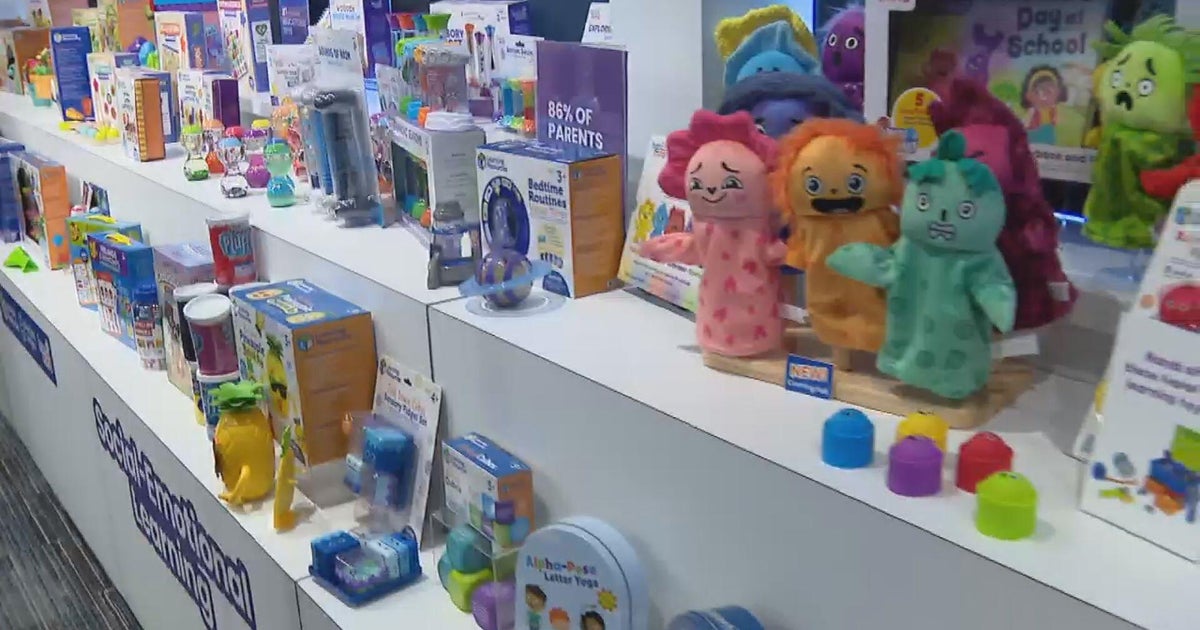Advanced Prenatal Tests Detect Disorders In Fetuses Early
MINNEAPOLIS (WCCO) -- When Nicolle and Eric Leska got married in 2010, they knew they wanted to wait a bit before having another child. But at 38-years-old, Nicolle knew their risk of a baby with chromosomal abnormalities was going up, however slightly.
"It was on the back of my mind since I found out we were pregnant, and we knew this was the route we were going to take," she said.
That route? Prenatal testing.
At first, Nicolle thought she'd go the traditional path of women over age 35 – transnuchal lucency, amniocentesis or chronic villus sampling -- but the possibility of false positives or the very small risk of miscarriage had them worried.
"I was really scared of jeopardizing my pregnancy," she said.
So the Leskas were surprised to learn from their doctor about a new advanced screening test that only required simple blood draw at 10 weeks. Results would be available within 7-10 days.
Right now, there are four tests on the market: Harmony, Maternit21, Panorama, and Verifi.
Each of them tell the risk of a fetus having extra 13, 18 or 21 chromosomes. An extra 21 chromosome is the cause of Down syndrome, and babies with Trisomy 13 or Trisomy 18 have a number of birth defects and quite often don't live past the age of one.
"It's sort of been on the horizon for a while and people are excited about it," said Beth Hall, the lead genetic counselor at Minnesota Perinatal Physicians. She helps parents-to-be decide if this non-invasive prenatal testing is right for them.
"We really try not to recommend anything for a patient," she said. "We try to provide information that's available."
Each of the four tests differ slightly in cost, accuracy and methods, but they all offer the same promise: a detection rate for Down syndrome of 99 percent or more, with a false positive rate of less than 1/10. The detection rates are slightly lower for Trisomy 13 and Trisomy 18. The test can also tell parents the sex of the baby.
"You'll see women are going to be able to get a more complete picture of rare genetic conditions that until now they've only found through invasive procedures," said Dr. Vance Vanier, the president of Verniata, the company that produces Verifi.
The labs analyze the DNA fragments in the mother's blood. By ten weeks, there's enough of the baby's DNA in the maternal blood to get accurate results. Currently, the test is recommended by the American College of Obstetricians and Gynecologists if a previous test or ultrasound suggests a high risk, a previous child has a chromosomal abnormality, or if a mother is 35 years or older. Many major insurance companies cover the test for that segment of women. Without insurance, the cost of the tests range from $795 to $1,500.
Among some parents with children who have Down syndrome, there is a concern that these early first-trimester tests might increase how many women with a positive result choose to terminate their pregnancies. But others believe these tests are vital. Gladis Rosales' 9-year-old son has Down syndrome. She counsels parents with newborns with the diagnosis.
"Moms will have the opportunity to educate themselves, to read the material, to be prepared for what they're going to be encountering," she said.
Hall says prenatal testing is an emotional decision for any new parent.
"People have to do a lot of soul searching to say is this the information they want," she said.
Hall says it's important to note an amniocentesis is still recommended for women who come back with a high-risk or positive test result.
For the Leskas, that test wasn't necessary. Just before Christmas, they got their result. It was negative.
"For me, it was a relief in some ways," Eric Leska said. "It was one less thing we needed to be worried about."







